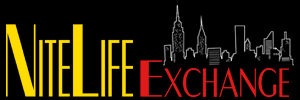
By Bart Greenberg***In Drew Pisarra‘s Price in Purgatory, the actor is somewhere between Heaven and Hell. After centuries in the latter, Vincent Price has been brought to Purgatory thanks to a coalition of Mormons (because he once played their founder Joseph Smith in a film), as well as some of his former co-stars (including Gene Tierney and Tab Hunter, but not Bette Davis). He doesn’t really remember Hades, and hasn’t much interest in Heaven, but still acquiesces to be interrogated by his Spirit Guide about his relationship to the seven deadly sins.
 God does wander in and out of the chamber, though he appears in the guise of a curious tween boy. At some points, Price and the Guide trade bodies and are also linked psychically and for a lengthy time speak in tandem. At the end of the play… well, that isn’t exactly clear. This is a short play (slightly less than an hour) where the first half is impressive and the second part is confusing. The audience is left with the feeling the author is trying to tell us something, but perhaps needed more time to convey it.
God does wander in and out of the chamber, though he appears in the guise of a curious tween boy. At some points, Price and the Guide trade bodies and are also linked psychically and for a lengthy time speak in tandem. At the end of the play… well, that isn’t exactly clear. This is a short play (slightly less than an hour) where the first half is impressive and the second part is confusing. The audience is left with the feeling the author is trying to tell us something, but perhaps needed more time to convey it.
Mike Pinney portrayed Price with an assured air of superiority, mixed with a bit of pomposity. His personal charm just kept his character this side of being obnoxious. His wit would make him suitable for a Noel Coward play. Jmar Reid as h is Spirit Guide and alternate self brought a slightly more rough edged personality, projecting fearsome intelligence and a bit of danger. When their personalities merged, the two actors pulled off an impressive technical trip of matching their speech and movements. As to the third actor in the show, it would seem an amusing idea to haveGod portrayed by a pre-teen boy, but the young man chosen, Sai Cameron Gatrall, had neither the theatrical authority nor the enunciation to pull it off. He had abundant energy, but his rushed delivery rendered many of his speeches unintelligible.
is Spirit Guide and alternate self brought a slightly more rough edged personality, projecting fearsome intelligence and a bit of danger. When their personalities merged, the two actors pulled off an impressive technical trip of matching their speech and movements. As to the third actor in the show, it would seem an amusing idea to haveGod portrayed by a pre-teen boy, but the young man chosen, Sai Cameron Gatrall, had neither the theatrical authority nor the enunciation to pull it off. He had abundant energy, but his rushed delivery rendered many of his speeches unintelligible.
As a work-in-progress, Price in Purgatory holds a great deal of promise, but it also requires some rethinking in the second half particularly. The first part is witty and smart, with shades of Shaw’s Don Juan in Hell, as Price and his Guide fence about the afterlife and life on Earth. Pride, vanity and other such personality flaws are bandied about. There are also many references to the actor’s roles in various films , but curiously, considering the setting, one that is absent is his “Mr.  Scratch” in the truly bizarre The Story of Mankind.
Scratch” in the truly bizarre The Story of Mankind.
Director Douglas Wagner has staged the show as a “radio play” so that the stage picture isoften static, though there are some moments of physical activity including a struggle and a change of positing that would confuse anyone simply listening to a program. On the other hand, the claim that the two central characters look identical except for age is something the audience can only accept as the delusion of the two males as they do not resemble each other in any way. Wagner does deserve major credit for casting the leads ideally and demerits for the choice in the third performer in the play.
Price in Purgatory was presented for two performances at the Cabaret 52/Above by All Out Arts in conjunction with the Fresh Fruit Festival, which should be applauded for presenting such unusual projects. Hopefully, Price in Purgatory will be developed further to clarify its themes and strengths.
Photos by Mark Wallis



